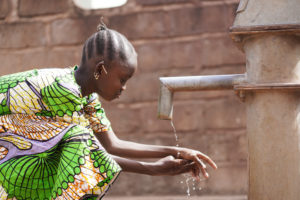As African countries continue to battle the Coronavirus pandemic, African women’s rights activists and organisers continue to find ways to respond to the challenge. With all the limitations that measures to stem the virus spread have brought, it requires new ways of reaching out to communities and policymakers. People-centred approaches to fighting the virus and it’s unprecedented impact are vital otherwise interventions could remain hanging without social legitimacy. Women’s and minorities’ community approaches to navigating, surviving and forging a post-COVID-19 world are important, must be documented and lessons drawn. I spoke with Mwanahamisi Singano, AF writer and Head of Programs at FEMNET on the newly launched Pan African Women COVID-19 Online Hub.
RK: How has the Coronavirus pandemic affected women and girls’ access to information?
MS: What is uniquely different about coronavirus is its isolation ability. To flatten the curve, people have been advised to isolate and stay home. Communication channels are the only means to access information about the disease and its adverse effects and stay connected with the outside world. With the increase of fake news in social media and single-story coverage in the mainstream media, women and girls in Africa, are denied their rights to access information they need to inform their decision and actions. In specific, the information made available to them has been well crafted to convey and spread the dominant (state) narrative – top-down broadcasted information. The information from women and girls, the nuanced analysis of the realities, impacts, response plans or lack of thereof are not easily accessed in the public domain.
RK: Why is there a need for a Pan-African Online Hub?
MS: With everyone confined within their homes, African women and girls, need and deserve to be informed about the wholeness of the pandemics. They need to know the realities of their fellow women across the continent, they need to know their governments’ responses and recovery plans, they need to know who provides which services, etc. To that end, FEMNET developed an online hub with and for African women and girls.
RK: What gaps are you intending to fill or bridge?
MS: The Pan-African Online Hub by African women and girls is a one-stop platform containing critical information resources about COVID-19 in Africa from a gender and feminist perspective. African women and girls in all their diversities can access practical information on COVID-19 and most importantly use the platform to share their COVID-19 lived experiences and realities. The Online Hub includes key recommendations, opinions and analysis by Africans available for use by advocates, activists and feminists to influence and lobby for dignified and inclusive COVID-19 responses in different African countries.
The Online Hub is managed by FEMNET on behalf of our diverse members and partners – and we continue to call for ALL national, regional and global COVID-19 response strategies and measures to be INCLUSIVE and DIGNIFIED so that the most vulnerable populations in our communities are identified, respected and reached first.

RK: How do you tackle misinformation especially among the less literate women and girls? What other underlying inequalities are you trying to address, and the limitations?
MS: It is unfortunate that women and girls make the majority of the illiterate in Africa with minimal access to technology and the internet. According to ITU, an estimated 3.6 billion people remain offline, with the majority of the unconnected living in the least developed countries. Traditionally, women’s rights organizations and other civil societies used outreach and community engagement to reach women and girls who are illiterate and disconnected from the digital world. With lockdowns and stay home, the majority of these women and girls are denied direct access to the information which forces them to rely on third or fourth parities – leading to misinformation crisis.
This pandemic in significant ways has made the divide between the middle-class literate and illiterate poor more visible and more pronounced. Structural inequalities embedded within our societies are being displayed. The pandemic hasn’t broken entire systems, but it has so far exposed how broken our social economic and political systems are.
The online hub, apart from being the platform to share reliable information to African women and girls, also act as a repository of the grave injustices exposed or perpetuated during the pandemic. These stories and reports are being used as evidence to influence redress in the short term and alter relations of power in the long term.
RK: Why is it important to have feminist perspectives and resources in this pandemic?
MS: Until the lion learns to write, every story will always glorify the hunter – This African proverb sums it all. We know women and girls carry the brunt of this pandemic, it is extremely important for African women to tell their tales and provide the intersectional analysis of both the problem and proposed solutions. After all, Africa has no shortage of Feminist schoolers and analysts who can expose white-washed and male-oriented COVID-19 responses. African responses to COVID-19 need to be guided by African Feminist principles which take care of those currently marginalised and lays the ground for policies to evaluate emerging marginalisations.
